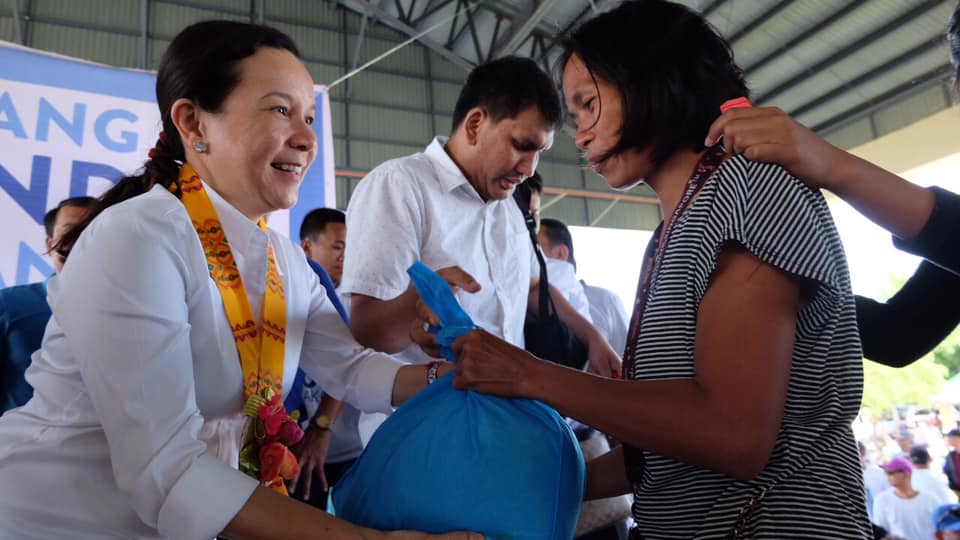Sen. Grace Poe organized a team of volunteers to pack and send relief goods to survivors in Cagayan Valley, one of the hardest-hit regions by Typhoon Ulysses.
“We need to extend as much help as we can now because this is the most critical time for survivors of the calamity. Every donation that reaches them sends the message that they have not been forgotten and that help is on its way,” said Poe.
Cagayan Valley, home of the 4,100-sq-km Magat Dam, became a catch basin as water from provinces affected by Typhoon Ulysses flowed into the dam and left the operators in a bind. Aerial photos of Cagayan Valley left the area unrecognizable in what has been described as the worst flood to hit the region in 40 years.
Volunteers from Poe’s office distributed bags filled with rice, sardines, vitamins, and calamansi juice in Ilagan City and the Municipality of Tumauini in Isabela, as well as the far reaches of Tuguegarao City. The donations were made through Panday Bayanihan, a nongovernment organization established in 2013 when Typhoon Maring affected 2.5 million people and displaced 800,000 residents.
“Rebuilding and recovering is no longer enough, we need to be resilient. This will not be the last nor the worst calamity that would sweep its way through the country, so we have to work on becoming more prepared by taking a long-term approach and building communities that are more resilient to the effects of climate change,” asserted Poe.
Poe recently filed Senate Bill No.124 or the proposed “Philippine Disaster Risk Reduction and Management System Act” that enables local government units to go beyond recovery and build communities that are resilient to calamities. It also seeks greater accountability by appointing a department secretary to the Department of Disaster Resilience and Emergency Assistance and Management that will be established, should the bill be passed into law.
“Previously, there were already calls to action, proposed initiatives and legislations that sought to help us prepare for the effects of climate change. Today, we consider them our ‘what if’. I hope that this doesn’t become another ‘what if’ when the next calamity strikes,” said Poe.
